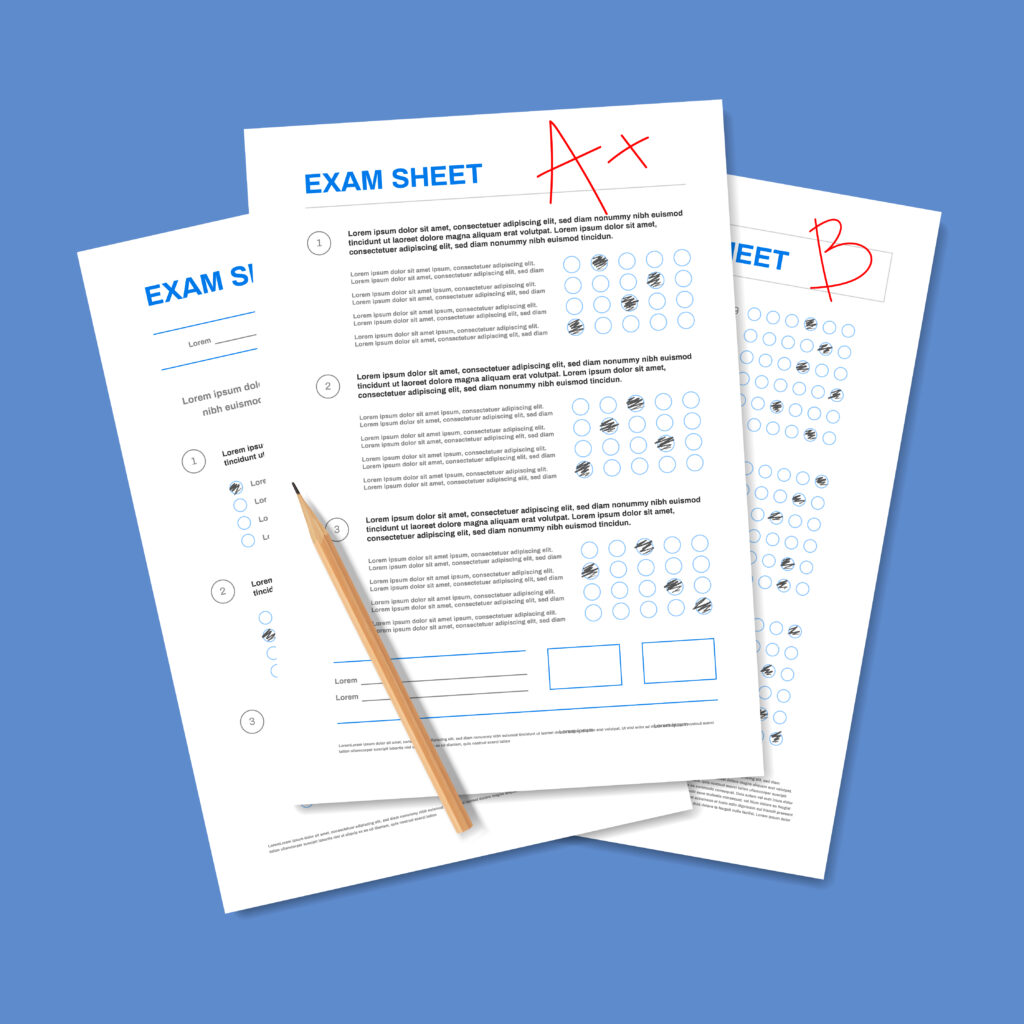Introduction:
I. Significance of GATE Exam for Engineering and Science Aspirants
Assessing Comprehensive Understanding and Problem-Solving Skills:
Gate Exam Preparation, the Graduate Aptitude Test in Engineering, plays a pivotal role in shaping the future of engineering and science aspirants. It transcends the boundaries of conventional assessments by serving as a robust tool to evaluate not only rote knowledge but also the comprehensive understanding and problem-solving skills of candidates. Unlike exams that focus solely on memorization, GATE emphasizes the practical application of concepts to real-world scenarios. This distinctive approach ensures that individuals entering postgraduate programs possess not just theoretical knowledge but a deep and practical understanding of their chosen fields.

Opening Opportunities for Higher Education and Career Advancement:
The significance of GATE goes beyond being a mere examination; it acts as a transformative force, opening doors to a multitude of opportunities for higher education and career advancement. A commendable score in GATE serves as a gateway to admission in top-tier postgraduate programs at premier institutions, providing a solid foundation for advanced learning. Importantly, GATE scores wield substantial influence outside the realm of academia, shaping career trajectories and enhancing employment prospects. Leading organizations and esteemed research institutions consider GATE scores as a benchmark, actively seeking out professionals with proven expertise. In essence, GATE becomes a catalyst for both academic excellence and career growth, illuminating a pathway for individuals to excel and thrive in their chosen fields.
Understanding the GATE Exam:

A. Exam Structure and Format:
Overview of the GATE Examination Pattern:
The Gate Exam Preparation is a comprehensive evaluation designed to assess the aptitude and knowledge of engineering and science candidates. It spans multiple disciplines, with a standardized structure that ensures fairness and accuracy in assessment.
Brief Summary:
- Duration: The Gate Exam Preparation typically spans three hours.
- Sections: The paper consists of multiple sections, each focusing on specific aspects of the candidate’s expertise.
- Question Types: A combination of multiple-choice questions (MCQs) and numerical answer-type questions for Gate Exam Preparation.
Detailed Explanation of Question Types and Marking Scheme:
Breakdown of Question Types:
- Multiple-Choice Questions (MCQs): Candidates choose the correct answer from a set of options.
- Numerical Answer-Type Questions: Require candidates to enter a numerical value as the answer.
Marking Scheme:
- MCQs: Positive marks for correct answers, negative marking for incorrect responses.
- Numerical Answer-Type Questions: Only positive marking; no negative marking.
Special Considerations:
- GATE may include questions that test both recall and analytical abilities.
- Sections like General Aptitude are designed to evaluate language and analytical skills.
B. Branch-wise Importance:
Highlighting the Relevance of Gate Exam Preparation for Different Engineering Branches:
GATE holds significant relevance across various engineering branches, ensuring inclusivity and specialization. The exam caters to disciplines such as Mechanical, Electrical, Computer Science, Civil, and more.
How GATE Opens Doors to Diverse Postgraduate Programs:
GATE scores serve as universal qualifiers, unlocking opportunities for candidates to pursue postgraduate programs in esteemed institutions. The diversity of engineering branches allows candidates to align their GATE achievements with their specific field of interest, ensuring a tailored approach to advanced studies. This inclusivity fosters a rich academic landscape, promoting interdisciplinary collaboration and the holistic development of engineering and science professionals.
Preparing for GATE: A Strategic Approach:
A. Creating a Study Plan:
Importance of a Structured Study Schedule:
Gate Exam Preparation, A well-structured study plan is the cornerstone of GATE preparation, ensuring systematic coverage of topics and optimal time utilization.
Significance:
- Efficient Time Management: A study plan helps allocate time to different subjects, ensuring comprehensive coverage.
- Consistency: Regular study schedules cultivate discipline, reducing last-minute stress.
- Identifying Weak Areas: Tracking progress enables candidates to identify and address weaknesses.
Balancing Subject Coverage and Revision:
Maintaining equilibrium between learning new concepts and revising previously covered material is crucial for a wholesome preparation strategy.
Tips:
- Divide Time Effectively: Allocate dedicated slots for learning new topics and revising old ones.
- Regular Revision: Consistent revision enhances retention and reinforces understanding.
- Prioritize Topics: Identify high-weightage topics and allocate time proportionally.
B. Selecting the Right Study Materials:

Reviewing Recommended Textbooks and Online Resources:
Choosing the right study materials significantly influences the quality of preparation and understanding of concepts.
Guidance:
- Textbook Selection: Opt for standard textbooks recommended by experts in the respective field.
- Online Resources: Utilize reputable online platforms for additional learning resources and clarification of doubts.
Incorporating Mock Tests and Previous Year Papers:

For Gate Exam Preparation, Practicing with mock tests and previous year papers is instrumental in acclimatizing to the exam pattern and enhancing problem-solving skills.
Emphasis:
- Simulated Exam Environment: Mock tests replicate the actual exam scenario, aiding in time management and stress control.
- Identifying Weaknesses: Analyze performance in mock tests to identify and address weak areas.
- Understanding Exam Pattern: Familiarity with previous year papers provides insights into question trends and helps strategize during the actual exam.
Subject-wise Preparation Tips:
A. Mechanical Engineering (Example Branch):
Specific Tips for Preparing Key Topics:
1. Thermodynamics:
- Conceptual Understanding: Focus on understanding the underlying principles before delving into problem-solving.
- Practice Numericals: Solve a variety of numerical problems to reinforce application skills.
- Diagrams and Charts: Create visual aids for processes and cycles to enhance memorization.
2. Strength of Materials:
- Master Basics: Ensure a strong foundation in basic concepts before advancing to complex topics.
- Real-world Applications: Relate theoretical concepts to real-world applications for better understanding.
- Solve Practice Problems: Regularly solve problems to improve problem-solving speed and accuracy.
3. Fluid Mechanics:
- Visualization Techniques: Use visualization tools to understand fluid flow patterns and dynamics.
- Numerical Problem Solving: Practice solving numerical problems to enhance problem-solving skills.
- Stay Updated: Be aware of the latest developments and applications in fluid mechanics.
Common Mistakes to Avoid During Preparation:
1. Procrastination:
- Consistent Schedule: Avoid last-minute cramming by maintaining a consistent study schedule.
- Break Down Topics: Tackle complex subjects by breaking them into smaller, manageable parts.
2. Neglecting Basics:
- Strong Foundation: Ensure a solid understanding of fundamental concepts before moving to advanced topics.
- Clarify Doubts: Address any conceptual doubts immediately to prevent knowledge gaps.
B. Customized Tips for Other Branches:
Tailoring Study Approaches for Diverse Engineering Disciplines:
Tailor your study approach based on the specific requirements of your engineering discipline.
Addressing Branch-specific Challenges:
Identify and address challenges unique to your engineering discipline, such as specialized software proficiency, hands-on laboratory skills, or interdisciplinary knowledge. Seek guidance from faculty or professionals in the field to overcome these challenges effectively.
Exam-Day Strategies:

A. Time Management:
Allocating Time for Each Section Effectively:
Effective time management is crucial during the GATE exam. Follow these strategies to optimize your time across different sections:
- Prioritize Sections: Identify sections where you are most comfortable and start with those to build confidence.
- Set Time Limits: Allocate specific time limits for each section based on the number of questions and their complexity.
- Skip and Return: If a question is particularly challenging, don’t hesitate to skip and return to it later. Focus on answering the questions you can tackle swiftly.
Strategies for Optimizing Time During the Exam:
- Read Instructions Carefully: Spend a few minutes reading instructions thoroughly to avoid mistakes due to misunderstanding.
- Quick Scan: Quickly scan through all questions before starting to solve. It helps in planning which questions to answer first.
- Mark Difficult Questions: Mark questions you find challenging and return to them after completing the easier ones.
B. Revision Techniques:
Last-minute Revision Do’s and Don’ts:
Effective last-minute revision can consolidate your preparation. Here’s what to do and what to avoid:
- Do Review Formulas: Quickly review key formulas for each subject.
- Don’t Start New Topics: Avoid diving into new topics at the last minute. Focus on reinforcing what you’ve already studied.
- Do Solve Sample Questions: Solve a few sample questions or revisit your notes to refresh your memory.
Post-Exam Guidance:

A. Score Interpretation:
Understanding GATE Scorecards and Ranks:
Once you receive your GATE scorecard, it’s crucial to interpret the information accurately. Here’s a breakdown:
- Total Marks: Identify your total marks scored in the examination.
- Qualifying Marks: Check the qualifying marks for your specific discipline to assess your performance.
- Percentile Score: Understand your percentile score, indicating the percentage of candidates who scored equal to or below your mark.
- All India Rank (AIR): Your All India Rank provides insight into your standing relative to all other GATE candidates.
Consider the comparison between your score and the qualifying marks, as well as your percentile and rank, to gauge your performance objectively.
Planning the Next Steps Based on GATE Results:
Receiving your GATE results opens up several opportunities. Here’s a guide on planning your next steps:
- Explore Postgraduate Programs: Research and shortlist postgraduate programs offered by reputed institutions. Consider the specialization and curriculum that align with your academic and career goals.
- Application Process: Check application deadlines and submission requirements for the postgraduate programs you are interested in. Ensure that you complete the application process accurately and promptly.
- Career Considerations: If you have specific career goals, explore industries and companies that value GATE qualifications. Update your resume and prepare for interviews or other application procedures.
- Further Education: If you aim for advanced studies, such as Ph.D. programs, research potential institutions, and faculty members. Understand the application process and deadlines for these programs.
Additional Tips and Resources:
A. Utilizing Online Communities:
Leveraging Forums and Discussion Groups for Support:
Engaging with online communities can significantly enhance your GATE preparation experience. Here’s how:
- Shared Learning: Participate in forums and discussion groups to exchange knowledge and learn from the experiences of others. Discussing concepts and problem-solving approaches can provide valuable insights.
- Clarifying Doubts: If you encounter challenging topics or have doubts, online communities offer a platform to seek clarification. Experts and peers can contribute to a better understanding of complex subjects.
- Resource Sharing: Members often share useful study materials, tips, and additional resources. This collaborative approach can broaden your study materials and expose you to different perspectives.
Sharing Experiences and Gaining Insights from Fellow Aspirants:
The benefits of interacting with fellow aspirants are immense:
- Motivation: Sharing your journey and hearing about the experiences of others can boost motivation. Overcoming challenges collectively fosters a sense of community and encouragement.
- Strategies for Success: Learn about effective study strategies and time management techniques that have worked for others. Tailor these strategies to suit your preferences and requirements.
- Exam Tips: Gain insights into the exam day experience from those who have already appeared for GATE. Understanding common challenges and effective strategies can better prepare you for the actual test.
B. Mental Well-being During Preparation:
Importance of Breaks and Self-Care:
- Regular Breaks: Incorporate short breaks during study sessions to avoid burnout. Taking breaks can refresh your mind and improve overall focus.
- Physical Activity: Engage in physical activities such as walking, jogging, or yoga to maintain a healthy balance between mental and physical well-being.
- Adequate Sleep: Ensure you get sufficient sleep. A well-rested mind is more alert and retains information more effectively.
Strategies for Maintaining Motivation and Focus:
- Set Milestones: Break down your study plan into manageable milestones. Celebrate achievements along the way to stay motivated.
- Visualize Success: Picture yourself succeeding in the GATE exam. Visualization can boost confidence and maintain a positive mindset.
- Positive Affirmations: Remind yourself of your capabilities through positive affirmations. Self-belief is a powerful motivator.

Conclusion:
Emphasizing the Journey and Personal Growth During GATE Preparation:
As you embark on your GATE preparation journey, remember that it’s not just about the destination but the transformative process you undergo. The GATE preparation period offers a unique opportunity for personal and academic growth. Each challenge you face, every concept you master, contributes to your overall development.
Concluding with Motivational Words for Aspirants:
In the face of difficulties, stay resilient. Success in GATE is not solely determined by the exam day performance but by the consistent effort and dedication you invest in your preparation. Believe in your abilities, stay focused, and embrace the learning process.
Final Words of Encouragement:
The GATE exam is a gateway to endless possibilities. It not only opens doors to prestigious postgraduate programs but also propels you toward a fulfilling and successful career. Approach your preparation with enthusiasm, seek support from the vibrant online community, and take care of your well-being.
Remember, you are not alone in this journey. Countless aspirants, just like you, are navigating the challenges and striving for excellence. Celebrate your achievements, learn from setbacks, and, above all, stay passionate about your chosen field.
As you step into the examination hall, carry with you the knowledge you’ve acquired, the skills you’ve honed, and the determination that has fueled your journey. You are well-prepared, capable, and ready to conquer the GATE exam.
Wishing you the very best on your GATE journey and the remarkable adventures that lie beyond. May your hard work be the catalyst for a future marked by success and fulfillment. Go forth with confidence, and may your GATE experience be a stepping stone to a bright and rewarding career.
Related Articles
1. How to prepare for GATE : Know using GATE Preparation Tips 2024!
2. The Do’s and Dont’s for Those Who Are Self-Studying for GATE Exam
3.How to Prepare for GATE 2024– Gate Preparation
- Importance of MOOCs
- Discover the significance of MOOCs (Massive Open Online Courses) in shaping modern education and advancing your career.
- MAKAUT Mar Points List (2023-2024) Online
- Access the online resource for the MAKAUT (Maulana Abul Kalam Azad University of Technology) Mar Points List for the academic year 2023-2024. Stay informed about the latest updates on admission criteria and merit points.




